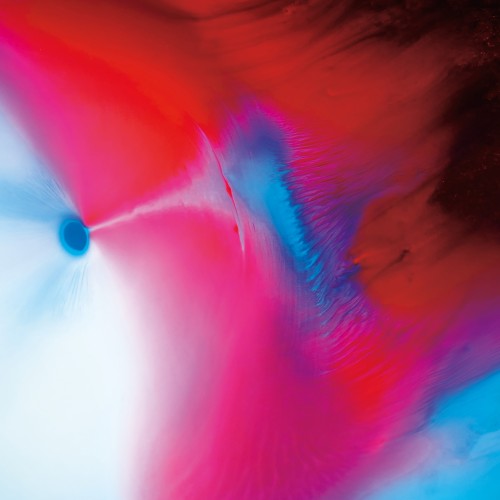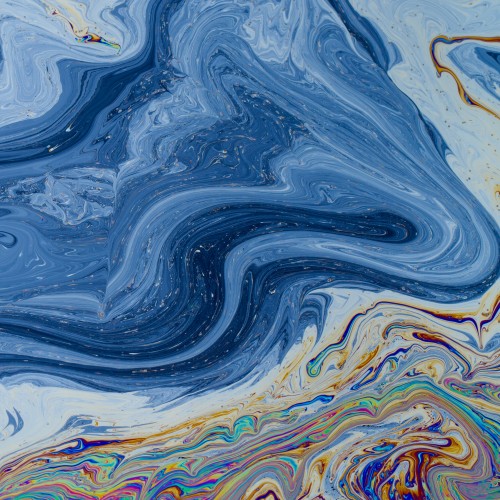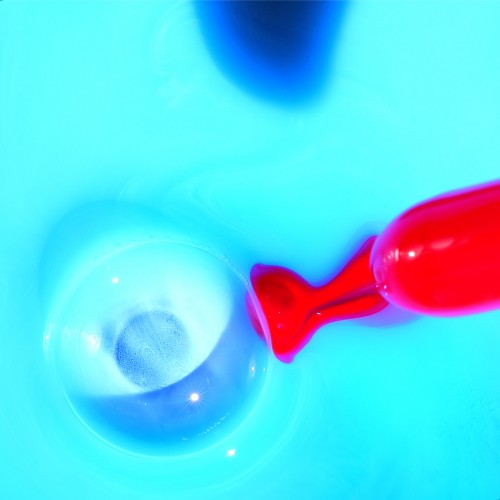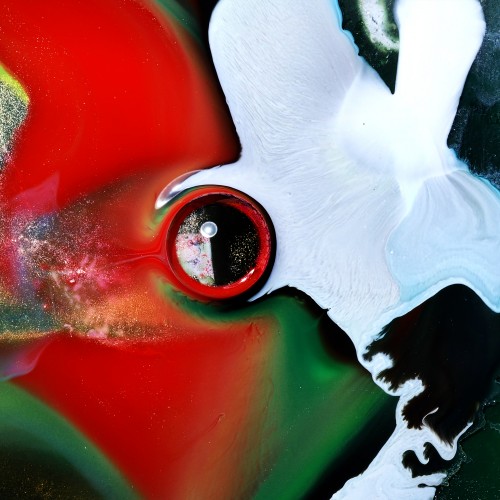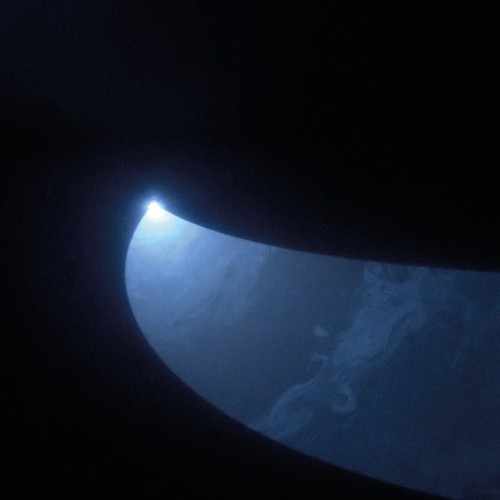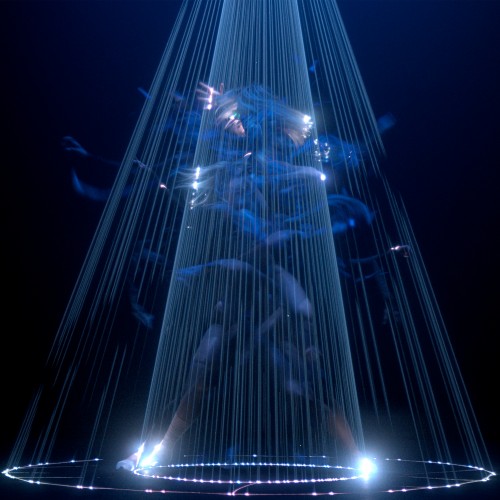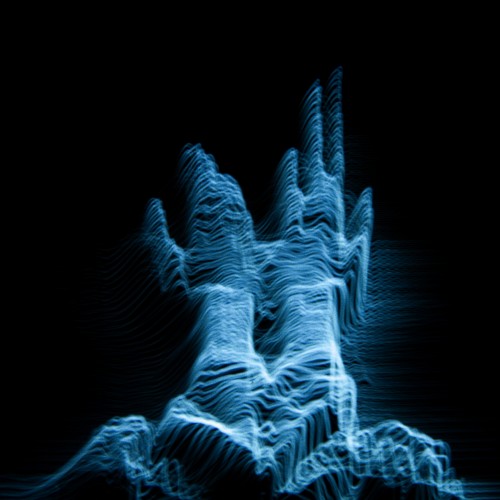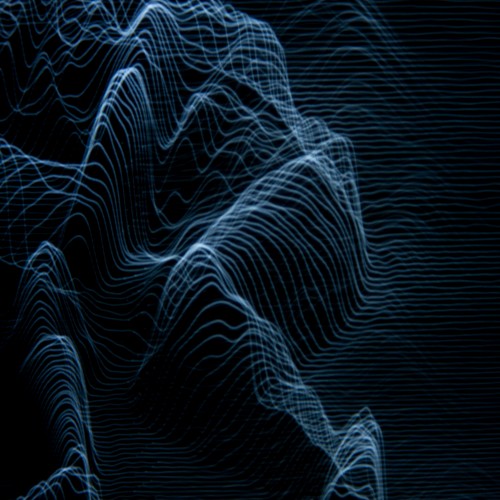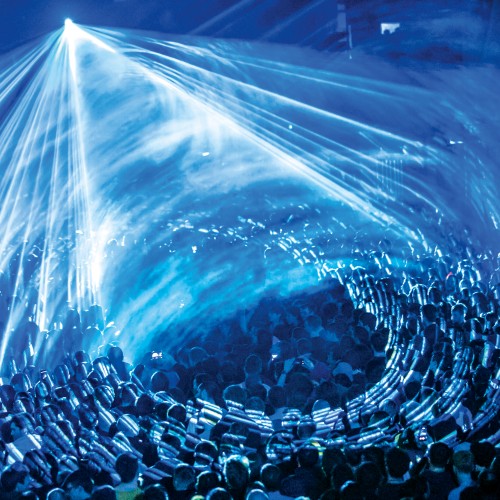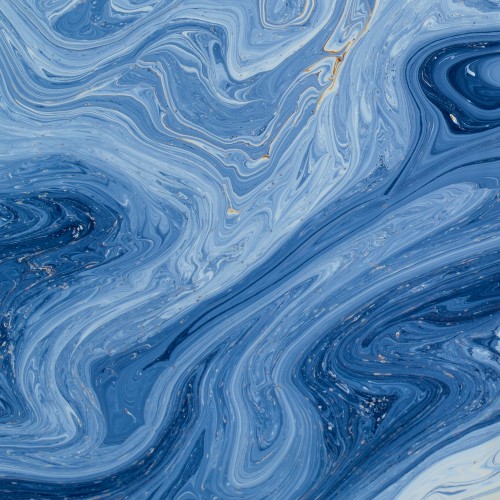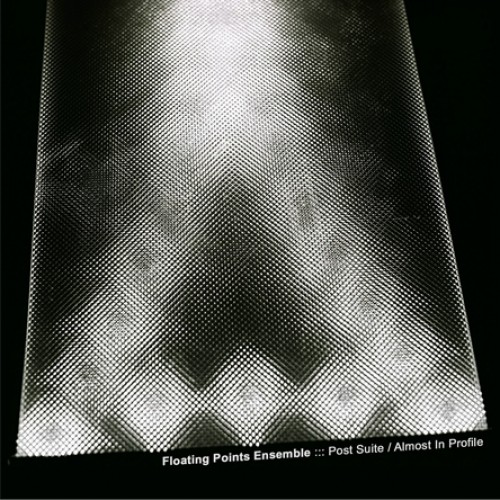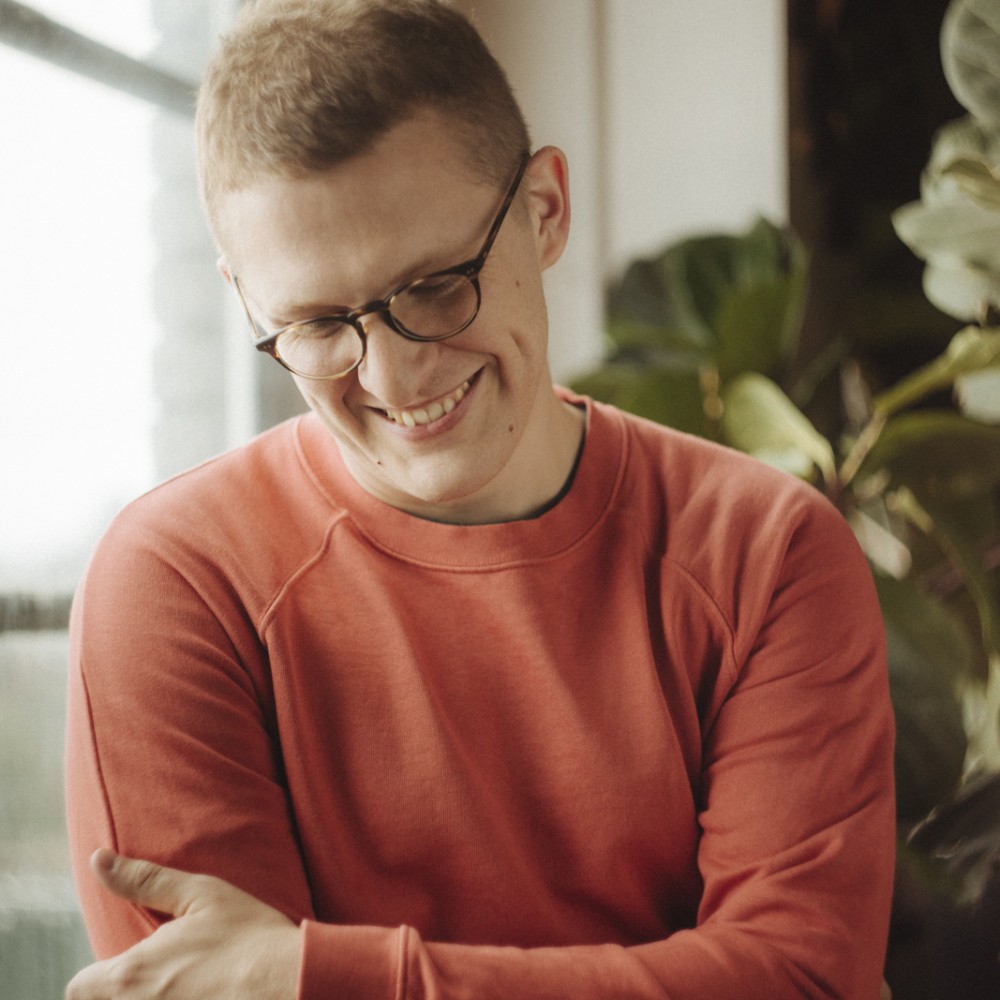
Floating Points
On Ninja Tune
BIOGRAPHY
The best musical mavericks never sit still for long. They mutate and morph into new shapes, refusing to be boxed in. Floating Points – aka Sam Shepherd – has so many guises that it’s not easy to pin him down. There’s the composer whose 2015 debut album Elaenia was met with rave reviews – including being named Pitchfork’s Best New Music and Resident Advisor’s Album of the Year – and took him from dancefloors to festival stages worldwide. The curator whose re...
The best musical mavericks never sit still for long. They mutate and morph into new shapes, refusing to be boxed in. Floating Points – aka Sam Shepherd – has so many guises that it’s not easy to pin him down. There’s the composer whose 2015 debut album Elaenia was met with rave reviews – including being named Pitchfork’s Best New Music and Resident Advisor’s Album of the Year – and took him from dancefloors to festival stages worldwide. The curator whose record labels have brought soulful new sounds into the club and, on his esteemed imprint Melodies International, reinstated old ones. The classicist, the disco guy that makes machine music, the digger always searching for untapped gems to rerelease. And then there’s DJ whose liberal approach to genre saw him once drop a 20-minute instrumental by spiritual saxophonist Pharoah Sanders in Berghain.
There’s no one thing he prefers best, he says from his London studio, where analogue synths constantly burble away in conversation with each other. Which means that one minute he’ll head out into the desert to make a short film and accompanying soundtrack based on its sonic environment (2017’s NPR Music and Rolling Stone-championed EP Reflections - Mojave Desert); the next, release a compilation of lambent, analogous ambient and piano music, as on his recent entry for the esteemed Late Night Tales compilation series. Or he might set about building his own sound system, destined one day for his dream club. It’s this versatility and insatiable pursuit of exceptional sound that has made Shepherd one of the most respected names in electronic music today – that and the fact that he knows how to throw a great party.
Floating Points’ first album in four years, Crush, twists whatever you think you know about him on its head again. It’s the producer at his most “unhinged,” he says, a tempestuous blast of electronic experimentalism whose title alludes to the pressure-cooker of the current environment we find ourselves in. At first the album might seem to suggest the idea of romantic longing but that’s actually a false sense of security. “To me, Crush evokes a slow violence,” says Shepherd, “like the crushing inevitability of self-serving political power-play, climate change, people and ideas being subdued – all these things that make us irate on a daily basis and feeling helpless to it.”
As a result, Shepherd has made some of his heaviest, most deranged tracks yet, nodding to the UK bass scene he emerged from in the late 2000s, such as the dystopian low-end bounce of striking lead single LesAlpx. But there are also some of his most expressive songs on Crush: his signature melancholia is there in the album’s sublime mellower moments or in the Buchla synthesizer, whose eerie modulation haunts the album. The opening instrumental Falaise sets the tone for that contrast, managing to sound both serene and tense as the strings pixelate and pucker the synths, the organic tussling with the synthetic.
Whereas Elaenia was a five-year process, Crush was made during an intense five-week period, inspired by the invigorating improvisation of his shows supporting The xx in 2017. He had just finished touring with his own live ensemble, culminating in a Coachella appearance, when he suddenly became a one-man band, just him and his trusty Buchla opening up for half an hour every night. He thought what he’d come out with would “be really melodic and slow-building” to suit the mood of the headliners, but what he ended up playing was “some of the most obtuse and aggressive music I've ever made, in front of 20,000 people every night,” he says. “It was liberating.”
His new album was likewise led by instinct. If Elaenia managed to skillfully build a world for you to step inside, subtly blurring the line between jazz, classical, electronica, psych-rock and even Brazilian pop, then Crush is about taking you for a breathless ride, seatbelts off, hair blowing out of the passenger window. “I was trying to create something that pulls you in,” says Shepherd, “like when you’re in a club and all the elements combine to create this amazingly immersive moment, something you can’t escape from.”
Shepherd also hoped to capture the “immediacy” of his early material and the thrill that he used to get when he heard his music played on the crystalline sound system at legendary London club Plastic People. He went back and listened to his first EP, 2011’s Shadows, which he released on Eglo Records – the label he co-founded 10 years ago with Alexander Nut – and which he’d made “on just a laptop, mostly when I was 17 or 18,” he says. “Even though it sounded quite naive, it was slamming, and it had a certain depth to it. I wanted to revisit that kind of spontaneity.” The ambient jungle of Apoptose in particular harks back to his early influences of MJ Cole, Calibre and the late Marcus Intalex, and growing up in Manchester listening to UK garage bang out of the local pub speakers opposite his childhood home.
Crush aims to recapture that approach, except that now his studio craft is highly evolved. The brilliantly bonkers Environments is a hectic catherine wheel of beats and blips, filled with the sound of various boxes of tricks gurgling and having fun with each other, but with a longing melancholy building in the background. The track’s final section is, says Shepherd, “a taste of how rugged the new live show is going to get.” Then there’s Bias, a garage-indebted track that has one of the most deliciously abrupt drops you’ll hear all year. “Many of the parts were recorded live and in one take, using the gear I take on the road” he explains, which gives the album its fast and loose energy.
It’s important for Shepherd’s new live show to have that energy too, so that the audience can see that what they’re watching isn’t just someone pressing play. He has teamed up once again with forward-thinking Barcelona-based artists Hamill Industries, The duo who brought their ground-breaking reactive laser technologies to his previous tours. Their vision is to create a constant dialogue between the music and the visuals and to translate Shepherd’s sound into something real and tangible as opposed to being computer generated.
This time, Hamill Industries’ visuals will zoom in on the natural world, where landscapes are responsive to the music and flowers or rainbow swirls of bubbles might move and morph to the kick of the bass drum. What you see on the screen behind Shepherd might “look like a cosmos of colour going on,” says Shepherd, “but it’s actually a tiny bubble with a macro lens on it being moved by frequencies by my Buchla,” which was also the process by which the LP artwork was made.” It means, he adds, “putting a lot of Fairy Liquid on our tour rider”.
There was for a time an assumption that Shepherd’s approach to music-making was somehow mathematical, or forged in a laboratory. But just taking his DJing style, for instance, and it’s clear there is no exact science to his selection. The “explosive” moments during one of his sets usually occur when he throws together unexpected genres, for the very simple reason that he gets excited about wanting to “hear this record, really loud, now!” and then puts the needle on. It’s “just like what happens when you’re at home playing music with your friends and it's going all over the place,” he says.
His new album feels similarly instantaneous – and vital. It’s the sound of the many sides of Floating Points finally fusing together: the carefree selector, the considered composer and the passionate label curator. But it’s also a sound that, while it’s born out of despair and frustration with the overwhelmingly dark forces around us, manages to provide some hope for compassion. Crush on that.
Forthcoming Events
| May 2026 | ||
| 23rd May 2026 |
Floating Points
Brockwell Park London, UK |
|
| June 2026 | ||
| 26th June 2026 |
Floating Points
Paradise City Festival Brussels, Belgium |
|
Floating Points
On Ninja Tune
Singles
Latest News
BIOGRAPHY
The best musical mavericks never sit still for long. They mutate and morph into new shapes, refusing to be boxed in. Floating Points – aka Sam Shepherd – has so many guises that it’s not easy to pin him down. There’s the composer whose 2015 debut album Elaenia was met with rave reviews – including being named Pitchfork’s Best New Music and Resident Advisor’s Album of the Year – and took him from dancefloors to festival stages worldwide. The curator whose record labels have bro...
The best musical mavericks never sit still for long. They mutate and morph into new shapes, refusing to be boxed in. Floating Points – aka Sam Shepherd – has so many guises that it’s not easy to pin him down. There’s the composer whose 2015 debut album Elaenia was met with rave reviews – including being named Pitchfork’s Best New Music and Resident Advisor’s Album of the Year – and took him from dancefloors to festival stages worldwide. The curator whose record labels have brought soulful new sounds into the club and, on his esteemed imprint Melodies International, reinstated old ones. The classicist, the disco guy that makes machine music, the digger always searching for untapped gems to rerelease. And then there’s DJ whose liberal approach to genre saw him once drop a 20-minute instrumental by spiritual saxophonist Pharoah Sanders in Berghain.
There’s no one thing he prefers best, he says from his London studio, where analogue synths constantly burble away in conversation with each other. Which means that one minute he’ll head out into the desert to make a short film and accompanying soundtrack based on its sonic environment (2017’s NPR Music and Rolling Stone-championed EP Reflections - Mojave Desert); the next, release a compilation of lambent, analogous ambient and piano music, as on his recent entry for the esteemed Late Night Tales compilation series. Or he might set about building his own sound system, destined one day for his dream club. It’s this versatility and insatiable pursuit of exceptional sound that has made Shepherd one of the most respected names in electronic music today – that and the fact that he knows how to throw a great party.
Floating Points’ first album in four years, Crush, twists whatever you think you know about him on its head again. It’s the producer at his most “unhinged,” he says, a tempestuous blast of electronic experimentalism whose title alludes to the pressure-cooker of the current environment we find ourselves in. At first the album might seem to suggest the idea of romantic longing but that’s actually a false sense of security. “To me, Crush evokes a slow violence,” says Shepherd, “like the crushing inevitability of self-serving political power-play, climate change, people and ideas being subdued – all these things that make us irate on a daily basis and feeling helpless to it.”
As a result, Shepherd has made some of his heaviest, most deranged tracks yet, nodding to the UK bass scene he emerged from in the late 2000s, such as the dystopian low-end bounce of striking lead single LesAlpx. But there are also some of his most expressive songs on Crush: his signature melancholia is there in the album’s sublime mellower moments or in the Buchla synthesizer, whose eerie modulation haunts the album. The opening instrumental Falaise sets the tone for that contrast, managing to sound both serene and tense as the strings pixelate and pucker the synths, the organic tussling with the synthetic.
Whereas Elaenia was a five-year process, Crush was made during an intense five-week period, inspired by the invigorating improvisation of his shows supporting The xx in 2017. He had just finished touring with his own live ensemble, culminating in a Coachella appearance, when he suddenly became a one-man band, just him and his trusty Buchla opening up for half an hour every night. He thought what he’d come out with would “be really melodic and slow-building” to suit the mood of the headliners, but what he ended up playing was “some of the most obtuse and aggressive music I've ever made, in front of 20,000 people every night,” he says. “It was liberating.”
His new album was likewise led by instinct. If Elaenia managed to skillfully build a world for you to step inside, subtly blurring the line between jazz, classical, electronica, psych-rock and even Brazilian pop, then Crush is about taking you for a breathless ride, seatbelts off, hair blowing out of the passenger window. “I was trying to create something that pulls you in,” says Shepherd, “like when you’re in a club and all the elements combine to create this amazingly immersive moment, something you can’t escape from.”
Shepherd also hoped to capture the “immediacy” of his early material and the thrill that he used to get when he heard his music played on the crystalline sound system at legendary London club Plastic People. He went back and listened to his first EP, 2011’s Shadows, which he released on Eglo Records – the label he co-founded 10 years ago with Alexander Nut – and which he’d made “on just a laptop, mostly when I was 17 or 18,” he says. “Even though it sounded quite naive, it was slamming, and it had a certain depth to it. I wanted to revisit that kind of spontaneity.” The ambient jungle of Apoptose in particular harks back to his early influences of MJ Cole, Calibre and the late Marcus Intalex, and growing up in Manchester listening to UK garage bang out of the local pub speakers opposite his childhood home.
Crush aims to recapture that approach, except that now his studio craft is highly evolved. The brilliantly bonkers Environments is a hectic catherine wheel of beats and blips, filled with the sound of various boxes of tricks gurgling and having fun with each other, but with a longing melancholy building in the background. The track’s final section is, says Shepherd, “a taste of how rugged the new live show is going to get.” Then there’s Bias, a garage-indebted track that has one of the most deliciously abrupt drops you’ll hear all year. “Many of the parts were recorded live and in one take, using the gear I take on the road” he explains, which gives the album its fast and loose energy.
It’s important for Shepherd’s new live show to have that energy too, so that the audience can see that what they’re watching isn’t just someone pressing play. He has teamed up once again with forward-thinking Barcelona-based artists Hamill Industries, The duo who brought their ground-breaking reactive laser technologies to his previous tours. Their vision is to create a constant dialogue between the music and the visuals and to translate Shepherd’s sound into something real and tangible as opposed to being computer generated.
This time, Hamill Industries’ visuals will zoom in on the natural world, where landscapes are responsive to the music and flowers or rainbow swirls of bubbles might move and morph to the kick of the bass drum. What you see on the screen behind Shepherd might “look like a cosmos of colour going on,” says Shepherd, “but it’s actually a tiny bubble with a macro lens on it being moved by frequencies by my Buchla,” which was also the process by which the LP artwork was made.” It means, he adds, “putting a lot of Fairy Liquid on our tour rider”.
There was for a time an assumption that Shepherd’s approach to music-making was somehow mathematical, or forged in a laboratory. But just taking his DJing style, for instance, and it’s clear there is no exact science to his selection. The “explosive” moments during one of his sets usually occur when he throws together unexpected genres, for the very simple reason that he gets excited about wanting to “hear this record, really loud, now!” and then puts the needle on. It’s “just like what happens when you’re at home playing music with your friends and it's going all over the place,” he says.
His new album feels similarly instantaneous – and vital. It’s the sound of the many sides of Floating Points finally fusing together: the carefree selector, the considered composer and the passionate label curator. But it’s also a sound that, while it’s born out of despair and frustration with the overwhelmingly dark forces around us, manages to provide some hope for compassion. Crush on that.
Forthcoming Events
| May 2026 | ||
| 23rd May 2026 |
Floating Points
Brockwell Park London, UK |
|
| June 2026 | ||
| 26th June 2026 |
Floating Points
Paradise City Festival Brussels, Belgium |
|

